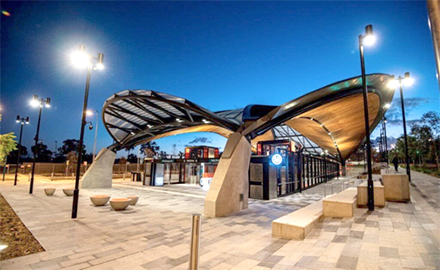
Acknowledging and rewarding environmentally sustainable choices made in the construction industry is becoming increasingly important as the demand for greater sustainability grows among end consumers, government, developers and specifiers. Source: Timberbiz
The most effective way for timber growers and manufacturers to provide proof of the sustainability of any timber product is through certification by an independent, recognised accreditation body such as the Program for Endorsement of Forest Certification (PEFC) internationally and in Australia through the Responsible Wood certification scheme.
Traditional “Chain of custody” certification poses problems for the construction industry however, when short-term projects involve numerous, uncertified contractors.
This has been resolved by Responsible Wood through the creation of “project certification”. This provides a mechanism for attaining Chain of Custody certification against the Australian Standard (AS4707) for a specified project with a limited duration.
Chain of Custody certification connects the end consumer with the sustainable origins of their timber products linking sustainable forest management with the market. It tracks forest- based products from sustainable sources to the final product, closely monitoring each step of the supply chain through independent auditing to ensure that only material with proven sustainability reaches the end consumer.
It is a solid assurance at a time when claims around sustainability and products being “Green” are abundant and, frequently, unproven.
Currently in Australia there are 250 individual sites operating Responsible Wood Certified Chain of Custody systems. The first project to ever be awarded Chain of Custody certification not only in Australia, but in the Southern hemisphere, is no small undertaking as it represents the biggest public transport project completed in Australia in recent years.
Seven of the eight Sydney Metro project’s stations have satisfied the criteria for Responsible Wood certification. The eighth station has achieved partial project certification by the Forest Stewardship Council.
In fact, from the outset there was a contractual requirement for Sydney Metro Northwest’s contractors to source 100% of all timber products used from either re-used, post-consumer recycled or ethically certified timber.
As a response to this, Northwest Rapid Transit (NRT) developed a procurement strategy to secure the supply of only certified timber products.
“It represents a pioneer project, not only the largest of its type in the southern hemisphere but the first to successfully achieve Responsible Wood and PEFC project certification and we are fielding more and more enquires from construction teams and certification bodies looking to achieve certification for future projects,” Simon Dorries Responsible Wood CEO said.
A key component of the stations’ design was elements of the Cumberland Plain and the impressive station roof canopies are representative of a leaf, while the underside is lined in timber species commonly found in the in the Cumberland Plain forests (Spotted Gum or Black Butt).
The timber used in the façades of the new multi-storey car parks was also certified as sustainably sourced bringing the total timber used in the project to 200,000 linear metres.
Construction was undertaken by John Holland and CPB Contractors.





